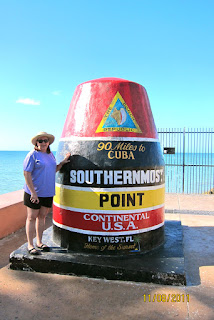Characters:
Nick Matthews
Stanley Sly
Mary, Stanley’s Secretary
Edgar, Nick’s father (not seen)
SCENE: A dim office with high ceilings and factory windows bordered by heavy draperies. Two upholstered easy chairs sit near the windows on the left. Oriental rugs cover the floor and built-in bookcases line the walls. A large oak desk stands centered in the office in front of a dark green leather-upholstered, high back office chair. A side chair sits to the left of the desk. A secretarial desk is farther back right, and there is a typewriter return with a mechanical typewriter on top. Beyond the desk farther back left is a managerial desk and modest desk chair with a telephone on top. The offices sit on the second-floor corner of an office headquarters attached to a factory in East Cleveland, Ohio. The office space and desks are completely absent of clutter. It is early afternoon on a miserably cloudy, rainy day in the middle of September, 1976.
At the rise of the curtain, Nick stands near one of the bookcases inspecting the hardbound leather books. Mary is softly tapping the typewriter keys at her desk, and hitting the carriage return after each line of type. Nick is tall, thin, dressed in a Navy blue suit and rep tie. His black shoes are shined. Mary is a short, trim woman in her early seventies. She is wearing a gray suit with shoulder pads and high-heeled shoes.
MARY (formally): Mr. Sly is on his way back from a meeting at The University Club downtown. He hates meetings, and he hates downtown. He’ll be here shortly. I would offer you coffee, but Mr. Sly doesn’t like people who drink coffee. You don’t smoke, do you? He doesn’t like people who smoke.
NICK (respectfully): No, thank you. I need time to organize my notes, and I’m fascinated by Mr. Sly’s book collection--mostly classics, not a single paperback, no books on the latest business fads or self-help.
MARY (wryly): Mr. Sly started this business as a bicycle shop. He thinks cars and airplanes are fads, along with two-way conversations. Be prepared to listen, young man. Mr. Sly often criticizes junior managers for talking when they should be listening, and every manager in this company is junior to Mr. Sly.
After Mary leaves, Nick becomes engrossed in reading the spines of the books in the bookcases. Just then, Stanley Sly bursts through a side door to the right, and walks briskly towards his chair, no handshake and no eye contact. He is 85 years old with combed-back white hair, and wears large black-framed glasses with thick lenses over floppy ears. He wears a blue gray three-piece suit with a colorful tie and powder blue shirt. He has an athletic gait to his walk. He is about five foot six. Sitting down behind the desk, he folds his long arthritic fingers in his lap, and opens his mouth to speak. His eyes appear out of focus.
STANLEY (looking impatient): I’m late, and I hate people who are late, don’t you? I was downtown at a meeting, and I hate meetings and I hate downtown, don’t you? Well, what are we about today, young man?
NICK (earnestly): I’m the new Personnel Director for the Company Staff, and we need to review Mary’s salary for next year.
Stanley reaches into his desk drawer, and pulls out a clean sheet of white paper. He hands it to Nick. He invites Nick to move from the desk to the easy chairs by the windows. They move.
STANLEY (with enthusiasm): Very well, you write down the information, and then I’ll comment on it.
Nick writes Mary’s salary history and the guidelines for the next year on the piece of paper.
NICK: Well sir, this shows Mary’s salary history for the last three years, and the guidelines for next year.
STANLEY: She makes that much? I tell you those Democrats are ruining this country. Now I hate coat hangers. You reach into the closet for one, and three fall on the floor--but coat hangers are more intelligent than Democrats. Mary’s not very bright, but at my age, I don’t need a bright secretary (typing stops). I give her dictation twice a day. Since I’m hard of hearing and she’s blind as a bat, she types something that is illegible. Now you may ask, why do I come to the office every day and send out illegible memos? Because if our profits don't improve, I'll have to take over management again, and the first things I'd do is turn this high-priced office building into a first-class whore house!
(typing resumes, more banging than tapping).
NICK (cautiously): So, do you intend to make an adjustment?
STANLEY: Yes, but not this year. Maybe next. Mary forgets to open these drapes in the morning, and close them before she goes home. I can’t support that kind of negligence. By the way, have you noticed that all the windows in this office building have been replaced except these original factory windows in my office? Why do you suppose? Do you think I can’t afford new windows?
NICK: I don’t know, Mr. Sly, why?
STANLEY (loudly with feeling): The windows are a symbol of the way things used to be!
I hate all the expense of showing off. I hate marketing. I hate lawyers and accountants. I hate unions. I hate all this talk of corporate responsibility. When I incorporated this company, we had one goal: make a profit. Now we have to hire women, minorities and other feeble-minded individuals. To me the greatest sight in the world is all the minorities in this country swimming past the Statue of Liberty towards the open ocean with a Democrat under each arm. And women, why before World War II, even the secretaries were men. Do you know that last Friday night, I walked into Andy Riley’s office, and he was screwing his secretary on top of his desk? I can’t stand immoral behavior in my company. Fire the secretary!
NICK (stunned): Mr. Sly, it’s not that easy anymore.
STANLEY (patronizingly): You’re right, give her two weeks’ pay.
NICK (grim): I’ll do an investigation, but we need to be even-handed on this.
STANLEY (gruffly): I can tell you don’t have your security clearance yet, so I’ll just let you in on a little something. We’re making the drive mechanisms for the Mark 46 Torpedo in this factory. We ship them to Honeywell. Honeywell loads the warheads. The Navy guides the torpedoes with a wire and blows a hole under the midships of an enemy ship. The ship collapses in the vacuum. Pretty nifty. Learned how from the sinking of the Edmund Fitzgerald--the ship fell into a deep trough between two big waves. Same principle. Now that’s what we’re doing, and nothing is more important. Now you’re probably a hippie in disguise with that short haircut, shiny shoes, and Navy blue suit. You probably marched in Selma, Alabama just before you protested the War in Vietnam. You probably cheered when the Clean Water Act was passed. You were probably an English Major, and you should be driving a taxi instead of working in an important place like this.
NICK (calmly): Mr. Sly, I was an English Major and I did march in Selma, but I also served two tours in Vietnam as an Army Ranger. I was in two helicopter crashes inside Cambodia.
STANLEY (surprised): What were you doing in Cambodia?
NICK: Chasing American deserters. We hunted them down, and shot them. So what you’re doing in this company is child’s play. I went into Personnel, because I want to spend the rest of my life doing something positive. You impress me as a close-minded, petty tyrant (typing stops).
STANLEY: I didn’t catch everything you just said, but I don’t like your tone. Now, I like mental exercises. Does your office have a window?
NICK: No.
STANLEY (temper rising): Well, pretend you have one! Now imagine yourself fired. It’s snowing outside, and you’re looking in the window from the cold, and your replacement is doing all the things you failed to do. Now go back to your office, and do them, before you get fired! (typing resumes).
Nick makes an about face, and exits the office. Once outside, he passes Mary without eye contact, and walks back to his desk. He calls his father, Edgar, who has worked 40 years for the telephone company. In the meantime, Stanley exits right.
EDGAR: Hello?
NICK (somberly): Dad, I don’t like my new job. I’m going to quit.
EDGAR: Nick, you will be throwing your career away. You’ll get a reputation as a quitter. Besides, you have your wife and babies to think about. Your student loans.
NICK: Dad, you didn’t raise me the way you did to work in a place like this.
EDGAR: Son, I have worked in ‘a place like this’ for 40 years.
NICK (puzzled): Why?
EDGAR: Loyalty.
NICK: Loyalty?
EDGAR (reflectively): Yes, when I was on the destroyer those years in the Pacific, I didn’t agree with everything that happened, but we all survived by doing what we were told. It sounds like you’ve been talking when you should’ve been listening. That man you work for has been on the cover of Time Magazine and in the Business Hall of Fame. Great exposure for someone your age. Wish I had worked with someone of that stature early in my career.
NICK (sadly): I’ve followed your advice about most things. I have six months’ pay in the bank, and I shine my shoes every day. But I’m going to quit.
EDGAR (earnestly): All I ask is that you think it over a few days before doing something rash. I promise I won’t talk to anyone about this, and you shouldn’t either. If you decide to leave, leave on your own terms when you’re ready. How you handle this is important.
People notice.
NICK: Thanks, Dad. I’ll think it over.
Nick hangs up the phone, lays his head over his folded arms, then rises abruptly and exits stage right.
NICK (exits stage right, quoting Shelly)): I will not add ‘the infamy of servitude to the crime of murder’-- I want to live like a bird sings, and I will.
The curtain falls.









